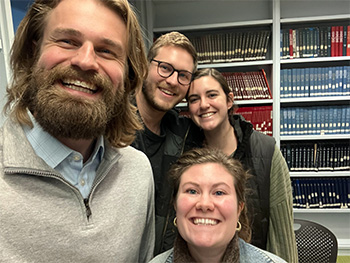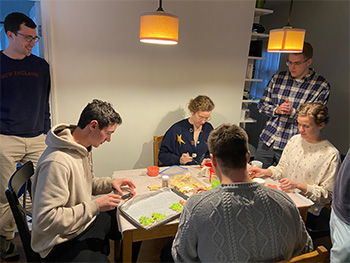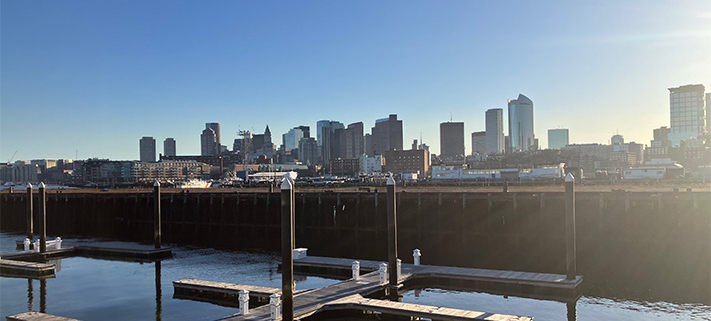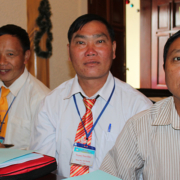Sowing seeds in urban soil
When you think of church, what pops into your head? I think of my home church building, St. John’s in New Ulm, Minn. I can see the stained-glass windows and large wooden cross up front. I can hear the organ and bells, the singing of hymns, and the subtle crack of the microphone as the pastor proclaims the sermon. I can smell the midweek Lenten supper simmering in the basement. I recall conversing with family and friends in the narthex after the service. It transports me to another world. Maybe you can relate.

Now, imagine you don’t have most of the things in that “other world.” There is no church building. No grand pipe organ blasting “Speak, O Savior; I Am Listening.” No microphones. No midweek Lenten soup. No Sunday morning conversations that last until the lights are shut off, telling you it’s time to go home. Would it still feel like church?
It might not feel like church, but it would be.
We don’t have a traditional church building in Boston or a large music ensemble yet (and one day, I hope we do). But we still have a church. Our church meets in many different places around the city: in libraries, co-working space, coffee shops, restaurants, and homes. We don’t have a large group of people, but we gather together to take in the scriptures, confess sins, recite creeds, and pray the Lord’s prayer. We do gather for fellowship and eat food together, and we share in the Lord’s Supper – just like you do.
It can be challenging for church to always feel like church when planting a new mission congregation. No programs are established and there isn’t a regular meeting on Sunday morning. It’s hard for the members of the congregation as well. Many of them are familiar with growing up in well-established congregations. I ask that you keep us in your prayers as we continue working on planting. 
This may all sound a bit pessimistic up to this point, but I promise it’s not meant to feel that way. Why? Because church planting, especially in a city, gives us opportunities to reach many people with the gospel. Some predict that 68 percent of the world will live in urban centers by 2050. That tells me that we must continue to plant churches in urban environments. We have to start somewhere. From a human perspective, if we can work in cities, we can reach more people worldwide.
Church planting efforts, like the one in Boston, may feel small to begin with. At times, they may not feel like church, but they are. Efforts like the one WELS is making in Boston are critical as we seek to see the spread of the gospel to the ends of the earth.
I am incredibly grateful for all the prayers and support of the work in Boston. Continue to pray for us and all of our church plants as we attempt to reach many with the good news of Jesus!
Written by Rev. Joshua Koelpin, home missionary in Boston, Mass.
Subscribe to future Missions Blogs at wels.net/subscribe.
WELS Missions
Learn about the ministry work of WELS Missions.
SUPPORT MISSIONS
Support the ministry work of WELS Missions.






